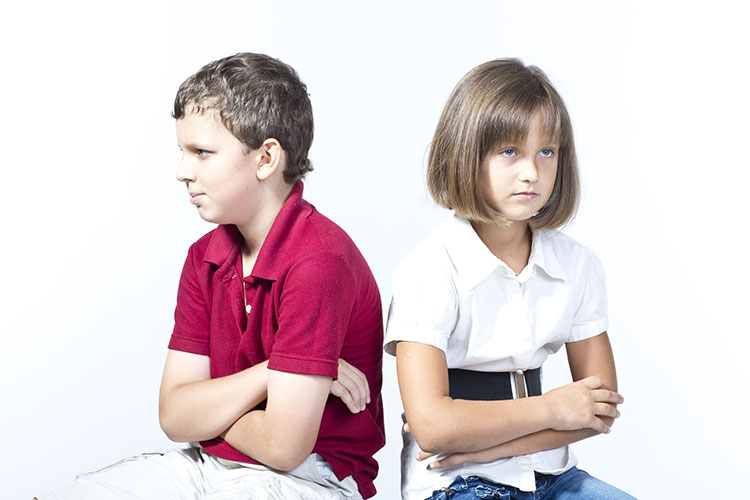How Children (and Adults) Can Manage Conflicts Once and For All


Kids fight. Conflicts arise and live on if you don't have the tools to diffuse the argument. If a conflict is allowed to fester until a grudge forms over a little thing, the bad feelings can last for a very long time. One resolved conflict can lead to better relationships in the future and more personal satisfaction and contentment. FactMonster is offering tips for kids to manage themselves and for the adults in their lives to help build kids' conflict resolution skills.
The number one thing kids need to do when a conflict arises is to step back and calm down. Looking at a problem with a clear head is always better. When your kid is calm they can look back at the problem and figure out what happened and how they can find a solution.
Once the children are calmed down the kids in the argument can work together to explain what the problem was—possibly as an adult prompts them with questions. Identifying the problem is a critical step in conflict resolution and everyone involved should know what exactly the problem was. There should be no misunderstanding in this step. If a misunderstanding of the essential problem endures, then the original issue will just come up again and again. The adults should keep asking questions about the conflict in order to get at the crux of the issue. Kids: take markers and paper and draw out your argument if you’re having trouble talking about just why you are so upset.
Emotionally-aware kids become successful adults
Teach your kid about emotional awareness. Talk to them about what they’re feeling and why. Kids: share your worries and angry thoughts with an adult you trust. People who understand their emotions understand why they’re feeling that way and can find the solution to their issues faster. Emotional intelligence is also a great skill to have in life because your social skills improve as your self-awareness heightens and you become more empathetic to others' situations. A high "EQ" will allow you to get along with all kinds of different people. Having high emotional intelligence also leads to a happier life. Children with high EQs will be able to solve their problems swiftly and independently.
A sincere apology is necessary in resolving any conflict. It shows that you know what you did was wrong and that you don’t want to do it again. Apologies are only sincere if they focus on the person who was hurt. Teach your kids that an apology should never place the blame on the person they are apologizing to. “I’m sorry, but” is not an apology, but an excuse for what happened and it shows no remorse or understanding for the situation that caused the harm. Kids: it takes a lot of guts to apologize. Consider writing your apology down and reading your written statement out loud to the person you’re disagreeing with. Role play—maybe even practicing your apology in a mirror or with a trusted adult.
How to remain civil and disagree
A good thing to teach your kids is to figure out if the conflict is worth resolving. If someone is trying to pick a fight with you—that would be a good time to just walk away. However, if someone within the conflict has caused serious emotional or physical harm that is worth exploring so that you get to a resolution swiftly. An unresolved conflict is destined to be repeated over and over again. Kids need to know when something they’ve done has caused harm and a resolution that would—hopefully—prevent damage from happening again should be a shared goal of any party in a disagreement. Kids: stop and speak up.
It’s important for adults to check in with children’s conflicts. Don't ask them about it daily but after a couple of weeks ask (for example) “How is it going with trying to get along with Alaina?” or “Do you think you and Marvin have finally worked things out between the two of you?” Once you learn that your child’s conflict resolution strategy is not working, you need to reassess the situation and truly consider whether or not these kids should interact as much as they have. No matter what, they still need to be civil with each other. Praise your child’s strategies in resolving issues with others—the end goal is not always keeping a friend but in diffusing the conflict and coexisting peacefully with one another. Kids: remember, you’ve succeeded if you both can get along and speak respectfully to one another.
Children and adults do conflict resolution very similarly. Think about how you would want to resolve an issue with a friend or coworker and share that with your kids. If you can teach them through your own experience that would help your kids learn their own process for conflict resolution. Try not to be prescriptive about conflict resolution tips, especially with pre-teens. Older children like to at least attempt to work though issues themselves. Kids: don’t forget, everyone has challenges getting along. Celebrate building your conflict resolution skills and don’t get down when you can’t be friends with everyone.
